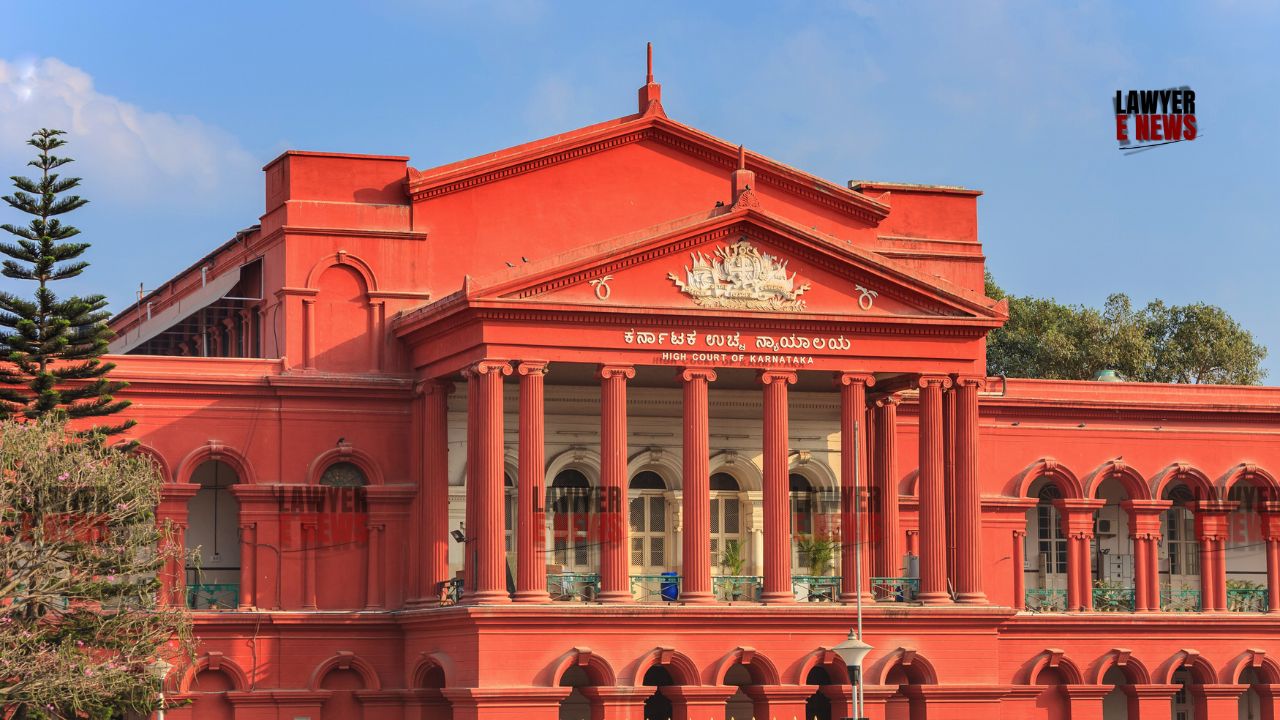-
by Admin
15 February 2026 2:16 AM



The Karnataka High Court has quashed criminal proceedings initiated against M/S Zim Laboratories Ltd. and its senior officials under the Drugs and Cosmetics Act, 1940, citing a significant delay in the testing of drug samples by government analysts. Justice N. S. Sanjay Gowda, in a detailed judgment, found that the petitioners were deprived of their statutory right to challenge the government's report, as the drug's shelf life had expired before the analysis report was submitted. The Court emphasized that the delay effectively nullified the petitioners' right to defend themselves, rendering the prosecution futile.
The petitioners, M/S Zim Laboratories Ltd., faced prosecution under the Drugs and Cosmetics Act, 1940, for allegedly manufacturing drugs that were "Not of Standard Quality" (NSQ). The issue arose when samples of the drug, obtained from an ESI Hospital, were tested by government analysts after significant delays—over 20 months in one case. By the time the reports were furnished, the shelf life of the drugs had expired, depriving the petitioners of the opportunity to challenge the test results or seek further analysis from the Central Drugs Laboratory (CDL). The petitioners argued that the prolonged delay in testing violated their statutory rights and rendered the prosecution baseless.
The Court found that the delay of over 20 months in testing the first drug sample, and a similar delay in the second sample, severely prejudiced the petitioners. Under Rule 45 of the Drugs and Cosmetics Rules (as amended in 2017), government analysts are mandated to conduct tests and submit their reports within 60 days of receiving a sample. Justice Gowda remarked, "The delay in testing the samples beyond the shelf life of the drugs has nullified the statutory right of the petitioners to challenge the government analyst’s report. This results in serious prejudice to the accused and vitiates the entire prosecution."
The Court underscored that the petitioners had a right under Section 25 of the Drugs and Cosmetics Act to challenge the government analyst's report within 28 days. However, the expiry of the drug's shelf life due to delayed testing deprived them of this opportunity. As the drug could no longer be re-tested, the petitioners’ right to defend themselves was effectively taken away, leading to a serious miscarriage of justice.
The Court also examined the allegations against the company's Chairman, Managing Director, and Executive Director. The complaint merely stated that these individuals were responsible for the conduct of the company but lacked specific details of their involvement in the manufacturing or distribution of the substandard drugs. Relying on Supreme Court judgments in Brij Lal Mittal and Lalankumar Singh, the Court held that general allegations without specific averments of direct responsibility were insufficient to establish vicarious liability. Justice Gowda stated, “The complaint is required to categorically state the wrongdoings of each of the accused. A mere designation in the company does not automatically establish responsibility for the conduct of its business.”
The Court highlighted the legislative intent behind Rule 45, which mandates that drug samples be tested within 60 days of receipt to ensure the safety of the public and allow manufacturers a fair chance to defend themselves. The use of the term “forthwith” in Section 23(4) of the Act further emphasizes the need for prompt action in drug analysis. Delays in testing not only endanger public health but also undermine the legal rights of the accused.
Justice Gowda emphasized, "The entire process of testing a drug sample must be completed with utmost urgency, failing which the statutory rights of the manufacturer to challenge the results are rendered meaningless."
The Court applied the principle established by the Supreme Court in Brij Lal Mittal, which requires specific allegations against company officials to establish their personal liability. In this case, the complaint contained only vague references to the senior officials’ roles, without detailing their involvement in the manufacture of the alleged substandard drug. As such, the prosecution against these individuals was deemed unsustainable.
Justice Gowda remarked, “If the statutory right of the manufacturer to challenge the test report is taken away, the entire prosecution becomes a futile exercise. The delay in this case has completely defeated the petitioners’ right to defend themselves, and hence, the proceedings stand vitiated.”
On the allegations against the senior management, the Court stated, “Simply because a person is a director of the company, it does not necessarily mean that he fulfills the requirements to be held vicariously liable under the Act.”
The Karnataka High Court’s decision to quash the criminal proceedings underscores the importance of adhering to statutory timelines in drug testing to protect both public health and the rights of the accused. By emphasizing the need for prompt testing and specific allegations in complaints, the judgment sends a clear message about procedural fairness in prosecutions under the Drugs and Cosmetics Act. This decision is likely to have wide-reaching implications for future cases involving delayed drug testing and the prosecution of senior company officials.
Date of Decision: August 30, 2024
M/S Zim Laboratories Ltd. v. Union of India & Others
